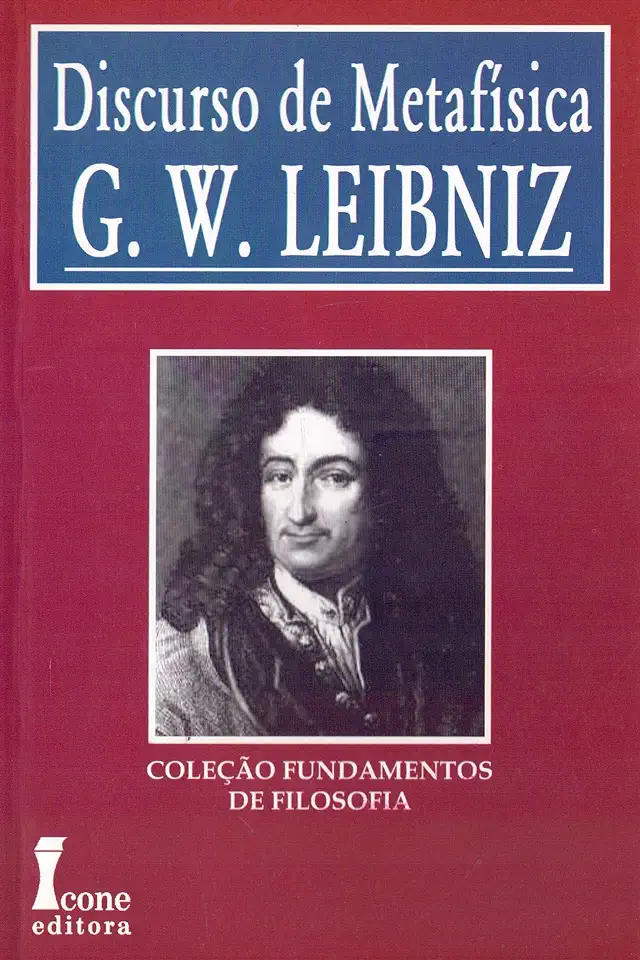
Discourse on Metaphysics - G. W. Leibniz
Discourse on Metaphysics: A Journey into the Profound Nature of Reality
In the realm of philosophical inquiry, few works stand as tall and influential as Gottfried Wilhelm Leibniz's "Discourse on Metaphysics." This seminal treatise, published in 1686, delves into the profound depths of metaphysics, inviting readers to embark on an intellectual odyssey that challenges their understanding of reality itself. With its captivating blend of logical rigor, philosophical insight, and metaphysical speculation, "Discourse on Metaphysics" remains a timeless masterpiece that continues to captivate and inspire thinkers to this day.
Unveiling the Essence of Substance
At the heart of Leibniz's metaphysical exploration lies his groundbreaking concept of substance. He argues that the universe is composed of an infinite number of simple, indivisible substances, which he terms "monads." These monads are not material entities but rather immaterial, dynamic centers of force and perception. Each monad is a microcosm of the universe, reflecting the entire cosmos within its own unique perspective.
The Harmony of Pre-Established Harmony
Leibniz's theory of monads is intricately interwoven with his principle of pre-established harmony. He posits that God, as the supreme monad, has created a universe in which all monads are in perfect harmony with one another. This harmony is not the result of direct interaction between monads but rather a consequence of their inherent nature and the divine plan. Each monad acts in accordance with its own internal principles, yet their collective actions resonate in a harmonious symphony that governs the universe.
The Principle of Sufficient Reason
Underpinning Leibniz's metaphysical framework is the principle of sufficient reason. He asserts that for every event or state of affairs, there must be a sufficient reason for its existence. This principle extends beyond the realm of physical causation, encompassing metaphysical and moral considerations. Leibniz argues that the existence of the universe, the laws of nature, and even human actions can all be traced back to a sufficient reason, ultimately leading to the existence of God as the ultimate ground of all being.
The Quest for Perfection and the Theodicy
Leibniz's metaphysical inquiries culminate in his exploration of theodicy, the attempt to reconcile the existence of evil with the existence of a benevolent God. He grapples with the problem of evil, arguing that God, being infinitely good and powerful, would not create a world in which evil exists unless there were a greater good that could not be achieved without it. Leibniz posits that the universe, despite the presence of evil, is the best possible world that God could have created, as it allows for the greatest harmony and perfection.
A Timeless Legacy of Metaphysical Thought
"Discourse on Metaphysics" stands as a testament to Leibniz's profound intellect and his unwavering pursuit of truth. His innovative ideas and groundbreaking theories have left an indelible mark on the history of philosophy, influencing subsequent generations of thinkers and shaping the course of metaphysical inquiry. This seminal work is not merely a historical artifact but a living testament to the power of reason and the human quest for understanding the nature of reality.
Embark on Your Own Metaphysical Journey
If you seek a book that will challenge your assumptions, expand your horizons, and ignite your intellectual curiosity, then "Discourse on Metaphysics" is an essential addition to your library. Join Leibniz on his metaphysical journey, and discover the profound insights that await those who dare to question the very nature of reality.
Enjoyed the summary? Discover all the details and take your reading to the next level — [click here to view the book on Amazon!]